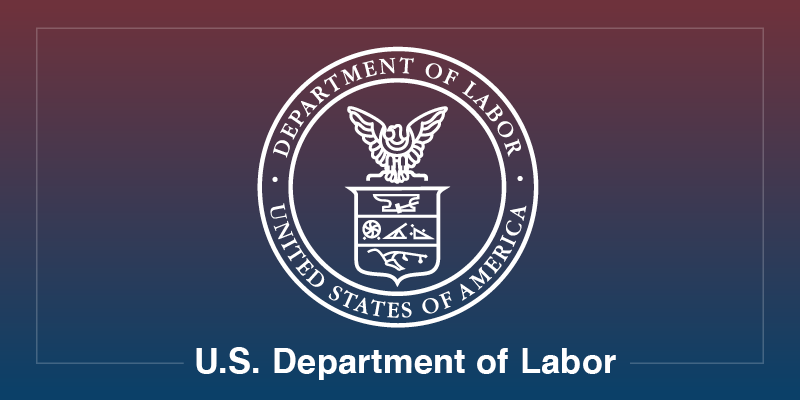US Department of Labor investigation uncovers child labor violations at 2 Knoxville Marco’s Pizza locations; employer pays $207K in penalties – US Department of Labor

KNOXVILLE, TN – U.S. Department of Labor Finds Child Labor Violations at Marco’s Pizza Franchisee
KNOXVILLE, TN – The U.S. Department of Labor has found a franchisee of two Marco’s Pizza restaurants in Knoxville employed children to clean and disassemble dangerous equipment and work outside of legally allowed hours, in violation of federal child labor laws.
Investigators with the department’s Wage and Hour Division found that Deliver Magic LLC, Deliver Magic II LLC and owner Stephen Petrone – operating as Marco’s Pizza on Maynardsville Pike and Ebenezer Road – employed 20 children to disassemble and clean dough sheeters, a violation of a child labor hazardous occupation order under the Fair Labor Standards Act. The employer also employed 15-year-olds in cooking and baking activities, both prohibited under federal child labor laws for children under the age of 16.
In addition, the employer violated the FLSA child labor hours standard by employing 11 workers between ages 14 and 15 to work past 7 p.m. between Labor Day and June 1. To address the violations, the employer and the restaurants have entered into an enhanced compliance agreement with the department and paid $207,486 in civil money penalties.
“Learning new skills in the workforce is an important part of growing up, but we must protect children and ensure their first jobs are safe and never interfere with their education or well-being,” said Wage and Hour Division District Director Lisa Kelly in Nashville, Tennessee. “The Fair Labor Standards Act allows for developmental experiences but restricts the employment of young workers in certain jobs and provides for penalties when employers do not follow the law.”
Enhanced Compliance Agreement
- Prevent children from working in any hazardous occupation, including disassembling and reassembling dough sheeters, and operating and cleaning dough rollers.
- Ensure 14- and 15-year-olds do not work outside of permitted hours, including during school hours, and do not engage in prohibited cooking activities.
- Provide materials to all locations regarding federal child labor laws.
- Update management training programs, training materials and onboarding materials to include information regarding FLSA compliance.
- Ensure all managers and supervisors review child labor materials on an annual basis and sign a compliance acknowledgement form certifying their knowledge of the materials.
- Require all employees under age 16 and their parents or guardians to sign a document indicating that they understand the child labor occupational and hours standards.
- Ensure employees under age 16 wear modified uniforms or color-coded name tags.
In fiscal year 2024, the department investigated 736 cases with child labor violations involving 4,030 children nationwide. The department addressed those violations by assessing employers more than $15.1 million in civil money penalties, an 89 percent increase from the previous year.
The department’s YouthRules! initiative promotes positive and safe work experiences for teens by providing information about protections for young workers to youth, parents, employers and educators. Through this initiative, the department and its partners promote developmental work experiences that help prepare young workers to enter the workforce. The Wage and Hour Division has also published Seven Child Labor Best Practices for Employers to help employers comply with the law.
Learn more about the Wage and Hour Division. The division offers confidential compliance assistance to anyone – regardless of where they are from – with questions about their wages or how to stay in compliance with the law by calling the agency’s toll-free helpline at 866-4US-WAGE (487-9243). The division can speak with callers in more than 200 languages.
SDGs, Targets, and Indicators in the Article
1. SDGs Addressed or Connected to the Issues Highlighted in the Article
- SDG 8: Decent Work and Economic Growth
- SDG 4: Quality Education
2. Specific Targets Under Those SDGs Based on the Article’s Content
- Target 8.7: Take immediate and effective measures to eradicate forced labor, end modern slavery and human trafficking, and secure the prohibition and elimination of the worst forms of child labor.
- Target 4.4: By 2030, substantially increase the number of youth and adults who have relevant skills, including technical and vocational skills, for employment, decent jobs, and entrepreneurship.
3. Indicators Mentioned or Implied in the Article to Measure Progress Towards the Identified Targets
- Indicator 8.7.1: Proportion and number of children aged 5-17 years engaged in child labor, by sex and age group.
- Indicator 4.4.1: Proportion of youth and adults with information and communications technology (ICT) skills, by type of skill.
Table: SDGs, Targets, and Indicators
| SDGs | Targets | Indicators |
|---|---|---|
| SDG 8: Decent Work and Economic Growth | Target 8.7: Take immediate and effective measures to eradicate forced labor, end modern slavery and human trafficking, and secure the prohibition and elimination of the worst forms of child labor. | Indicator 8.7.1: Proportion and number of children aged 5-17 years engaged in child labor, by sex and age group. |
| SDG 4: Quality Education | Target 4.4: By 2030, substantially increase the number of youth and adults who have relevant skills, including technical and vocational skills, for employment, decent jobs, and entrepreneurship. | Indicator 4.4.1: Proportion of youth and adults with information and communications technology (ICT) skills, by type of skill. |
Source: dol.gov








